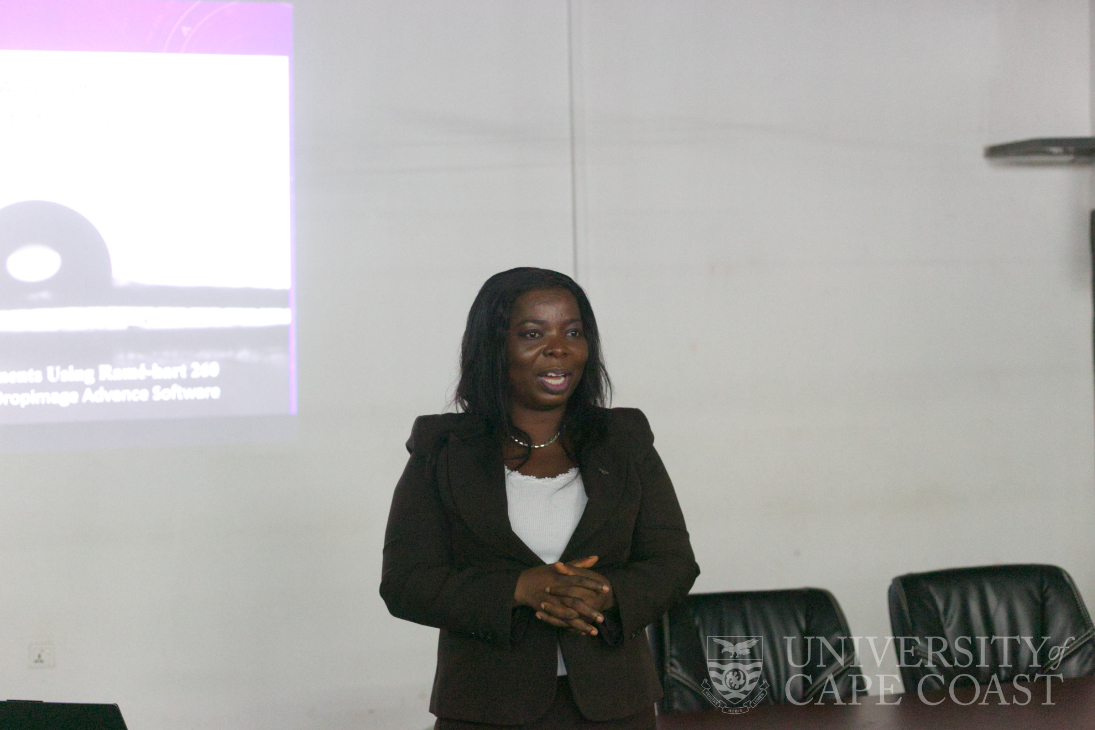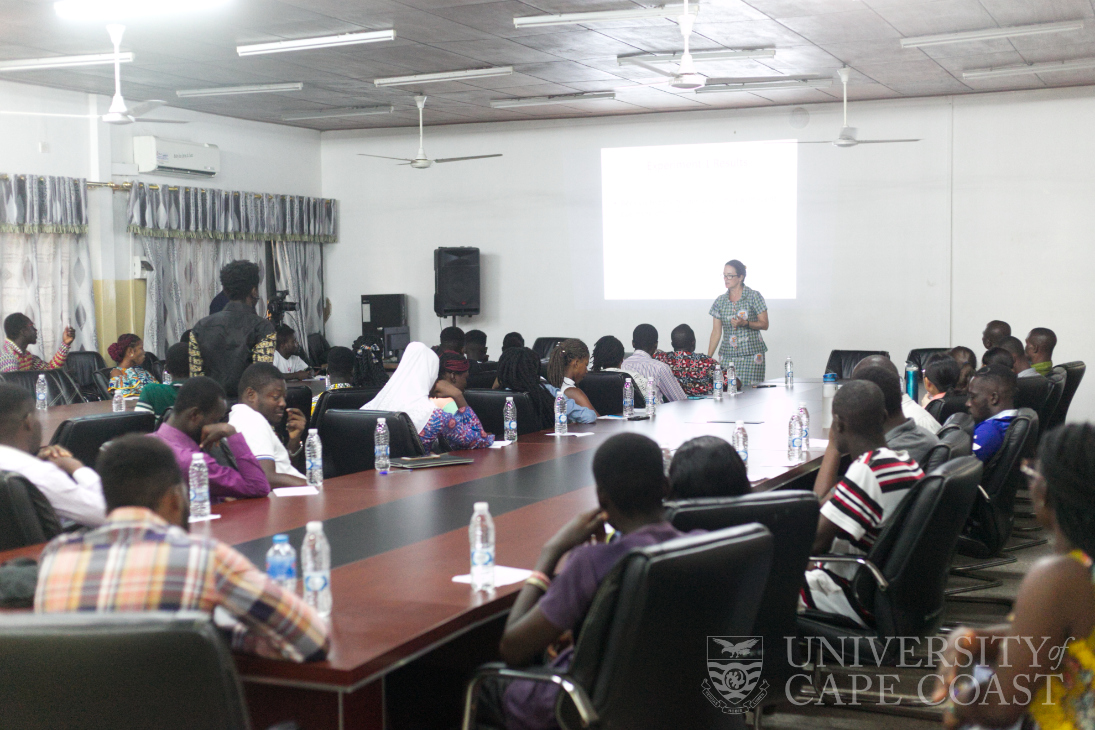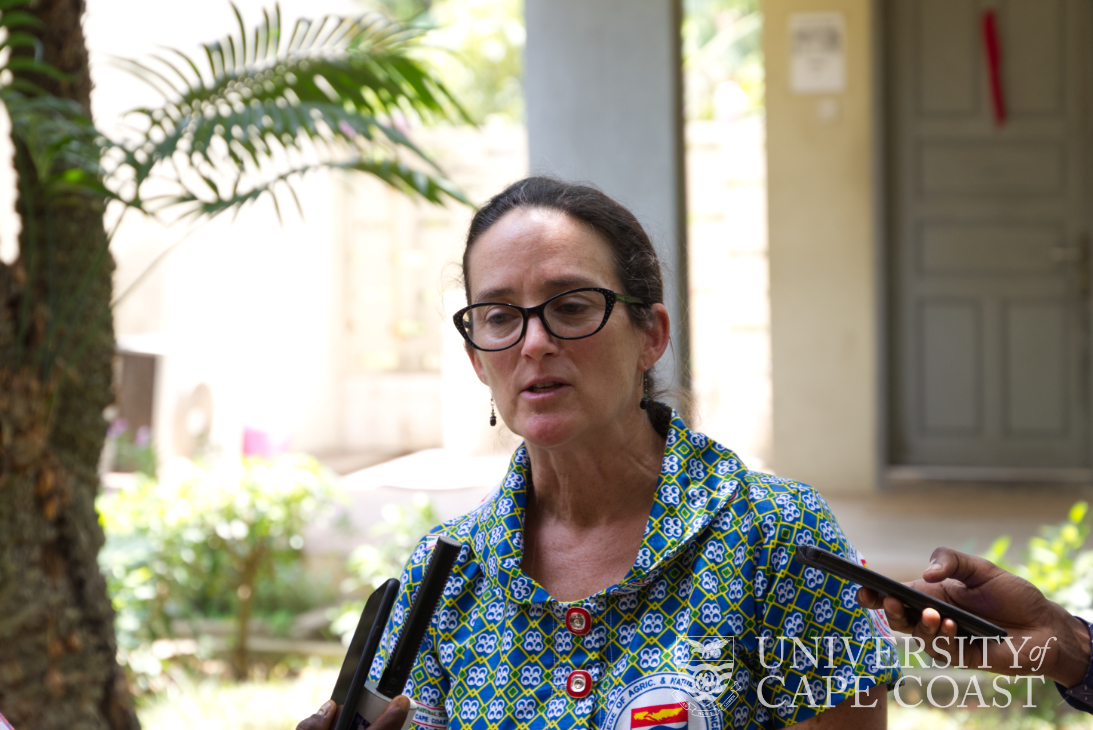The Department of Conservation Biology and Entomology has indicated its readiness to collaborate with other research institutions and industries to apply knowledge of some identified characters of insects to develop environmentally friendly products.
The Head of the Department, Dr. Rofela Combey, who disclosed this, said "insects’ body have some compounds and small structures that allow them to protect themselves (from extreme environmental conditions)."
" It will be nice that the dress you are wearing for instance can block radiations from the sun or the creams and sunscreens we use can be more effective to protect yourself from high sunlight intensity" she continued.
Dr. Rofela Combey, making a presentation at the seminar
Dr. Combey was making a presentation on the topic: “Exploring Insects' Wings as Bio- Inspired Materials." at a departmental seminar held at the Sasakawa conference room.
She noted that through the study, it was realised that dragonfly wings were made up of materials that allowed them to block lights that were harmful to their body generally.
She also added that “insects have structures on the wings that protect themselves from rainfall”. The dragonfly, unlike other insects, is able to fly even in the raining season whereas other insects go into hiding at such a time. The study revealed that this ability of dragonflies is as a result of a property of the wing which prevents it from getting wet.
Despite the general knowledge that insects are harmful, Dr. Combey explained that there are several beneficial insects that already contribute significantly to our comfort as humans through pollination and other ecosystem services but then other area of the knowledge of insects that can be further explored is the application of their inherent characteristics and properties to develop products that would be beneficial to man.
Prior to the earlier presentation, a Visiting Professor from Bucknell University, Prof. Elizabeth Capaldi, speaking on the topic:" Multi Learning Modals in Honeybees", in her presentation noted that honeybees had memory of places that linked them to food sources.
She explained how bees are able to modify their behavior to locate their food resources through learning of their environment and the features present at every point in time.
"When they randomly find food. They remember its location based on what they see from the source of the food and are able to return back to their nest. This helps them figure out where to go to find food on the next trip, " she indicated.
Prof. Elizabeth Capaldi taking her turn at the seminar
Despite the small brains of honeybees, Prof. Capaldi stated that they could hold memories for a long time as compared to other insects.
The Visiting Professor, therefore, called for urgent steps to protect the habitat of bees, mostly forests, to ensure that the country was able to take advantage of the benefits that bees offer to the citizenry.
Prof. Elizabeth Capaldi




